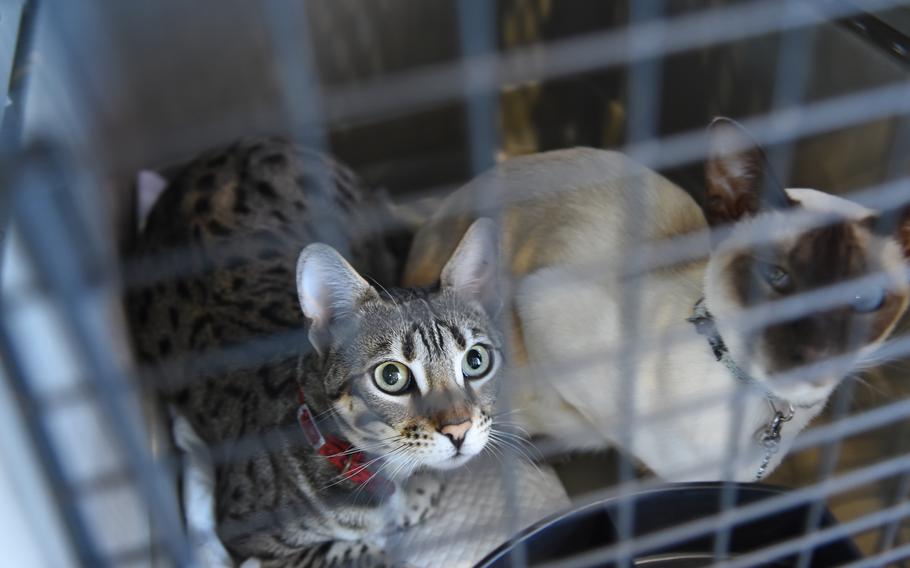
Nala, left, and Evia peer out from a kennel at Ramstein Air Base, Germany, in 2020. A new Pentagon policy announced June 21, 2023, states that service members relocating to and from overseas locations will be eligible for a maximum of $2,000 to cover pet transportation expenses. That is half the amount approved by Congress late last year. (Jennifer H. Svan/Stars and Stripes)
A new Pentagon policy to reimburse military families for pet moving expenses will fall short of the amount allowed by law when it goes into effect Jan. 1.
The policy, announced Wednesday by the Defense Department, states that service members relocating to and from overseas locations will be eligible for a maximum of $2,000 to cover pet transportation expenses. That is half the amount approved by Congress late last year. For moves within the continental U.S., the maximum is $550.
The reimbursements cover costs associated with moving one household pet, either a cat or dog, the policy states.
“The services estimate that this new allowance may be used by an estimated 227,000 service members,” the Defense Department said in a statement.
The allowance gives a boost to military families, as troops currently pay out of pocket to transport pets.
“This policy reduces that financial burden while recognizing the important role a pet plays in a military family's household,” the DOD statement said.
Still, the Pentagon was authorized to make the relocation benefit more generous. The National Defense Authorization Act of 2023 set the maximum for pet moves outside the continental U.S. at $4,000. DOD did not say why it elected to put the maximum at half that amount.
Costs for shipping pets are based on a sliding scale, according to the animal’s weight.
The Patriot Express, a government-contracted air service between the United States and overseas military bases, is an option for travelers that tends to be most affordable. On such flights, pet moving costs are $125 for those under 70 pounds, $250 for 71-140 pounds and $350 for 141-150 pounds. The weight of the pet and the carrier are included in the pricing.
However, pet space on Patriot Express flights is available only on a first-come, first-served basis. And when pets exceed the weight amount limit, commercial airliners are needed.
Prices vary greatly among airlines when shipping pets. In 2022, an Air Force couple used crowdfunding to help pay the $15,000 needed to move their 145-pound Great Dane named Henry and his 50-pound carrier from Japan to New Mexico.